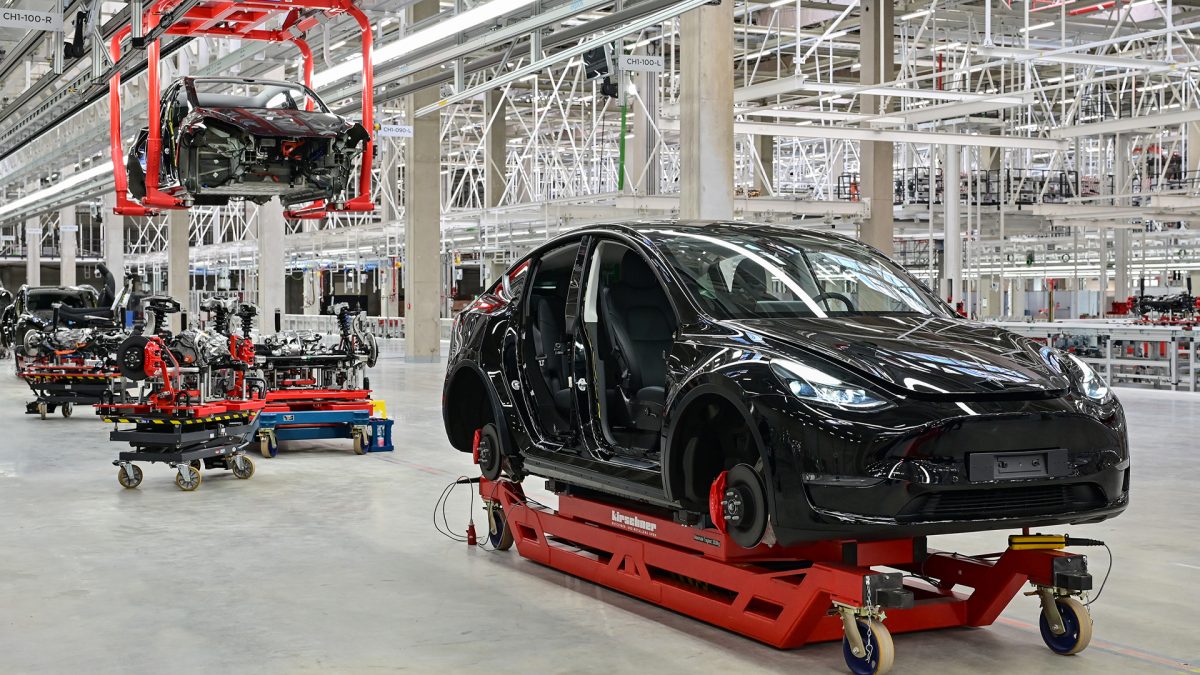The 9% levy on Tesla is notably lower than the average 21.3% tariff imposed on companies that cooperated with the investigation, and much less than the 36.3% for those that did not. This tariff is in addition to the EU’s standard 10% duty on EVs imported from China read more
)
Tesla benefited from Chinese state subsidies. which included below-cost batteries, access to cheap land, and various grants aimed at exporters. Image Credit: Reuters
Tesla is set to face a 9 per cent additional tariff on its electric vehicles (EVs) exported from China to the European Union (EU), according to an announcement from the European Commission. This decision is part of a broader investigation into what the EU sees as “unfair” subsidies provided by Beijing to its domestic EV industry.
The 9 per cent levy on Tesla is notably lower than the average 21.3 per cent tariff imposed on companies that cooperated with the investigation, and much less than the 36.3 per cent for those that did not.
This tariff is in addition to the EU’s standard 10 per cent duty on EVs imported from China. The relatively modest 9 per cent tariff was assigned after Tesla requested individual consideration during the Brussels inquiry. It stands in stark contrast to the much harsher 100 per cent tariffs imposed by the United States on similar products.
EU officials conducted an inspection of Tesla’s Shanghai operations in June, concluding that the company had indeed benefited from Chinese state subsidies. These subsidies included below-cost batteries, access to cheap land, and various grants aimed at exporters. The 9 per cent tariff is expected to be implemented by October 31, pending approval from EU member states.
This decision comes as part of the European Commission’s ongoing efforts to adjust tariffs on Chinese-made EVs. Alongside Tesla, other major Chinese EV producers are also facing revised tariffs.
BYD, which is in close competition with Tesla for the title of the world’s largest EV producer, will be subjected to a 17 per cent tariff. Geely’s tariff will be set at 19.3 per cent, while SAIC will face a 36.3 per cent duty.
These rates have been adjusted downward following technical discussions with the companies involved, and there is a possibility of further changes.
In a somewhat unexpected move, the EU also announced that no provisional tariffs would be imposed before the final tariffs take effect at the end of October. This decision was made because EU officials determined that European carmakers are currently facing a “threat of injury” from the influx of Chinese EVs rather than experiencing actual damage like factory closures or job losses.
However, officials warned that without action, the rapid growth of Chinese EV exports, driven by substantial subsidies, could soon cause “material injury” to the EU’s automotive industry.
The Kiel Institute for the World Economy provided some context earlier this year, estimating that China’s subsidies to its EV industry amounted to approximately $5.6 billion in 2022. BYD was the largest recipient, securing $3.7 billion of that aid. While Tesla received significantly less than BYD, it still benefitted from about $426 million in support for its Shanghai facility, making it the second-largest recipient of Chinese aid.
Further analysis from the China trade specialist website Soapbox, using data from the European Commission’s Eurostat and Chinese customs authorities, revealed that between June 2020 and June 2024, 45 per cent of the total value of EVs exported by China was destined for the EU.
Interestingly, Chinese manufacturers ramped up exports in April 2024 in anticipation of the impending tariffs, and registrations of these imported EVs in the EU surged between April and May before tapering off.
As the European Commission finalises its decisions, the automotive industry and consumers alike are closely watching the impact these tariffs will have on the availability and pricing of Chinese-made EVs in Europe. Tesla, along with other key players, will have to navigate these new financial challenges as the EU moves to protect its domestic car manufacturers from what it sees as unfair competition.

 4 weeks ago
6
4 weeks ago
6
)
)
)
)
)
)
)
)
)
)
)
)
)
)
)
)
)
)
)
)
)
)
)
)
 English (US) ·
English (US) ·